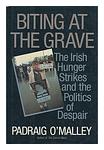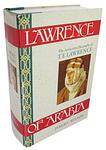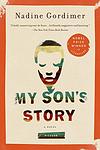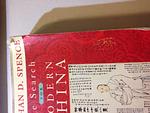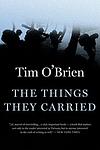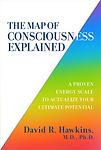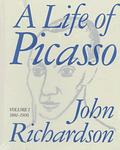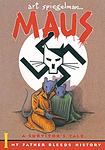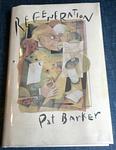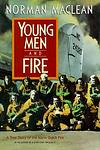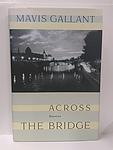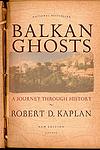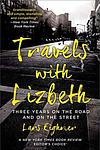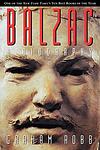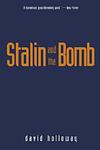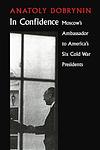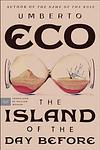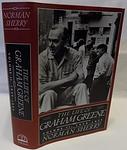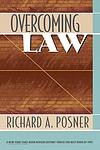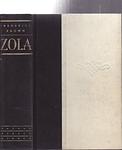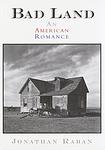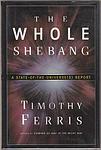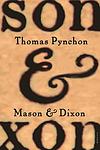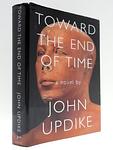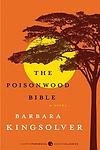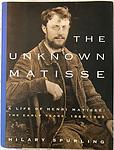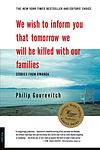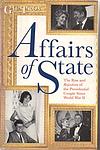NY Times Editors Choice 1990-1999
This is one of the 305 lists we use to generate our main The Greatest Books list.
-
Biting At The Grave by Padraig O'Malley
"Biting at the Grave" is a compelling exploration of the intense period of the Troubles in Northern Ireland, focusing on the years 1985 to 1991. The book provides an in-depth analysis of the political and social turmoil that characterized this era, marked by violent confrontations and efforts towards peace. Through interviews, personal accounts, and detailed research, the narrative delves into the lives of those directly affected by the conflict and examines the broader implications of their experiences on the peace process. The author's meticulous documentation and insightful commentary offer a profound understanding of the complexities and human costs of a deeply divided society striving for reconciliation.
The 8159th Greatest Book of All Time -
Poems Of Anna Akhmatova by Anna Akhmatova
This collection presents a poignant anthology of works by a prominent Russian poet, whose verse captures the complexities of life and love against the backdrop of the early 20th century, including the turmoil of the Russian Revolution and the hardships of the Stalinist era. The poems are marked by their lyrical intensity, emotional depth, and personal reflection, often weaving together themes of individual suffering, resilience, and the enduring power of the human spirit. The poet's distinctive voice and masterful use of language have cemented her place as a significant figure in the literary canon, offering readers a deeply moving and introspective journey through her experiences and observations.
The 4086th Greatest Book of All Time -
Friend Of My Youth: Stories by Alice Munro
The book is a collection of short stories that delve into the complexities of human relationships, memory, and the passage of time, often through the lens of women's experiences. Set primarily in small-town Canada, the narratives explore the lives of characters who confront personal betrayals, moral dilemmas, and the subtle yet profound moments that shape their identities. With a keen eye for detail and a masterful use of language, the author weaves tales that reveal the depth and nuance of ordinary life, capturing the universal truths that lie within the particularities of individual stories.
The 4736th Greatest Book of All Time -
Lawrence Of Arabia by Jeremy Wilson
This biography provides a comprehensive look at the life of T.E. Lawrence, a British archaeologist, military officer, and diplomat, who played a crucial role in the Middle Eastern theater during World War I. The book delves into his instrumental efforts in the Arab Revolt against the Ottoman Empire, exploring his complex character, his strategies in guerrilla warfare, and his lasting impact on the region. It also examines his post-war years and the struggles he faced, including his attempts to find peace and anonymity, shedding light on the enigmatic figure known for his leadership and his legendary exploits in the desert.
The 8091st Greatest Book of All Time -
London Fields by Martin Amis
The novel is a darkly comic, murder mystery set in London at the end of the 20th century. The story follows three main characters: a terminally ill American writer, a petty criminal, and a beautiful but doomed woman who predicts her own murder but not the murderer. The narrative is filled with satirical social commentary, exploring themes of love, lust, greed, and deception.
The 970th Greatest Book of All Time -
My Son's Story by Nadine Gordimer
The novel revolves around Sonny, a colored schoolteacher turned activist in apartheid-era South Africa, who becomes as much a stranger to his family as he is a hero to the public. As Sonny's political involvement deepens, his family suffers from the consequences of his actions and the sacrifices they are forced to make. The story is narrated by his son, Will, who grapples with his father's legacy and the complex interplay of personal desires and political imperatives. The narrative explores themes of betrayal, love, and the personal costs of political commitment.
The 8159th Greatest Book of All Time -
Omeros by Derek Walcott
"Omeros" is an epic poem that explores the lives of a small community in the Caribbean. The narrative intertwines the lives of characters such as fishermen, a housemaid, and a disabled veteran, all of whom embody various aspects of Caribbean history and culture. Drawing inspiration from Homer's Iliad and Odyssey, the narrative is not only a vivid portrayal of post-colonial Caribbean life but also a profound meditation on identity, civilization, and the human condition.
The 1934th Greatest Book of All Time -
Possession by A. S. Byatt
"Possession" is a novel that interweaves two storylines, one set in contemporary times and the other in the Victorian era. The contemporary plot follows two academics who uncover a secret love affair between two 19th-century poets, while the Victorian storyline presents the clandestine romance itself. As the modern scholars delve deeper into the past, they find themselves falling in love as well, mirroring the historical romance they are researching. The book explores themes of love, passion, and the power of the written word.
The 266th Greatest Book of All Time -
Rabbit at Rest by John Updike
The novel is a final look into the life of Harry "Rabbit" Angstrom, a former high-school basketball star, now in his mid-fifties, overweight and grappling with several health issues. Despite his success in business, his personal life is in shambles, with his wife addicted to alcohol and his son to drugs. Harry, struggling with his mortality, is trying to understand his past and make sense of his future, while dealing with the changing American society and the consequences of his own choices.
The 475th Greatest Book of All Time -
The Search For Modern China by Jonathan Spence
This book provides a comprehensive overview of Chinese history from the late Ming dynasty through the end of the 20th century, exploring the complex social, political, and economic transformations that have shaped modern China. The narrative delves into the fall of the Qing dynasty, the rise of the Republic, the struggles of the Nationalist and Communist parties, and the eventual establishment of the People's Republic of China. Through detailed analysis and engaging storytelling, the book examines the internal dynamics and external influences that have driven China's modernization and rise to global prominence, offering readers deep insights into the forces that have defined contemporary Chinese society.
The 8159th Greatest Book of All Time -
Simone De Beauvoir by Deirdre Bair
This biography provides an in-depth look at the life of Simone de Beauvoir, a prominent French existentialist philosopher, feminist, and writer. It delves into her intellectual and personal relationship with Jean-Paul Sartre, her role in the feminist movement, and her contributions to existentialist philosophy. The book meticulously explores her complex life, from her early years in Paris to her global influence, drawing on a wealth of unpublished letters and diaries. The author presents a nuanced portrait of Beauvoir's life, highlighting her profound impact on both literature and feminist theory.
The 8159th Greatest Book of All Time -
The Things They Carried by Tim O'Brien
The book is a collection of linked short stories about a platoon of American soldiers fighting in the Vietnam War. The story is semi-autobiographical, based on the author's experiences in the war. The narrative explores the physical and emotional burdens the soldiers carry during the war, as well as the lingering effects of war on veterans. It delves into themes of bravery, truth, and the fluidity of fact and fiction.
The 257th Greatest Book of All Time -
Tropical Gangsters by Robert Klitgaard
"Tropical Gangsters" is an engaging memoir by an economist who recounts his experiences working in Equatorial Guinea as a consultant for the World Bank in the 1980s. The book offers an insightful look into the challenges of international development and economic reform in a country plagued by corruption and mismanagement. Through vivid storytelling, the author illustrates the complexities of advising a government where vested interests and systemic corruption stifle progress and reform. The narrative not only exposes the difficulties of implementing economic policies in such environments but also reflects on the broader implications for development work in similar contexts around the world.
The 8040th Greatest Book of All Time -
Vladimir Nabokov by Brian Boyd
This biography provides an in-depth exploration of Vladimir Nabokov's life and works, tracing his journey from his aristocratic origins in Russia, through his emigration to Europe and eventually the United States, where he achieved literary fame. The book delves into Nabokov's multifaceted identity as a writer, critic, and lepidopterist, examining how his love for butterflies influenced his literary style and themes. It also discusses his most famous works, including his controversial novel *Lolita*, and provides insights into his unique narrative techniques and his enduring impact on world literature. The biography is a comprehensive study that highlights Nabokov's complex character, his linguistic prowess, and his philosophical insights into human nature and art.
The 8159th Greatest Book of All Time -
Collected Stories Of V. S. Pritchett by V. S. Pritchett
This collection brings together the finest short stories of a master storyteller, showcasing a lifetime of skillfully crafted narratives. Spanning several decades, the anthology reflects on the complexities of human relationships, the nuances of social interaction, and the idiosyncrasies of everyday life. With a keen eye for detail and a profound understanding of the human condition, the stories traverse a variety of settings and characters, each vividly brought to life through the author's sharp wit and insightful observation. This compilation not only celebrates the art of the short story but also solidifies the author's legacy as one of the 20th century's most distinguished writers in the genre.
The 2358th Greatest Book of All Time -
Consciousness Explained by Daniel Dennett
The book in question offers a comprehensive theory of consciousness, challenging traditional views and proposing a scientific understanding of the mind. The author argues against the Cartesian model of consciousness as a central, unified entity and instead presents the "Multiple Drafts" model, which posits that consciousness arises from various cognitive processes occurring in parallel. The work delves into the nature of perception, memory, and language, employing insights from psychology, neuroscience, and artificial intelligence to explain how complex phenomena such as self-awareness and intentionality can emerge from the interactions of non-conscious brain functions. The book is both a critique of outdated philosophical ideas about the mind and an attempt to clarify how consciousness can be studied and understood through empirical means.
The 2195th Greatest Book of All Time -
Holocaust Testimonies by Lawrence L. Langer
"Holocaust Testimonies" is a profound exploration of the personal narratives of survivors of the Holocaust, analyzing the complex ways in which they articulate their experiences of unimaginable trauma. The book delves into the psychological and emotional impact of their memories, examining how survivors struggle to convey the reality of the Holocaust and how their testimonies challenge the listener's understanding of human nature and history. Through a careful study of these personal stories, the book reveals the enduring impact of the Holocaust on individual lives and the collective memory, emphasizing the importance of bearing witness to the truths of human suffering and resilience.
The 8204th Greatest Book of All Time -
The Journals Of John Cheever by John Cheever
"The Journals of John Cheever" is a deeply introspective and revealing collection of personal writings by one of the 20th century's most celebrated authors. Spanning several decades, the journals offer a candid and often poignant look into the complex inner life of the writer, exploring his reflections on his own literary success and failures, his struggles with alcoholism, his conflicacies about his sexuality, and his observations on American society. The entries are marked by Cheever's eloquent prose and his sharp, often critical, insights into the human condition, making the journals not only a window into his private world but also a rich document of the times in which he lived.
The 8204th Greatest Book of All Time -
A Life of Picasso by John Richardson
This biography delves into the life of one of the most influential artists of the 20th century, Picasso. The book provides an in-depth look into his early life, his relationships, his artistic evolution, and his influence on the art world. It offers a comprehensive exploration of Picasso's personal and professional life, shedding light on his genius and the complexities of his character. The author's detailed research and intimate knowledge of the artist's life make this book a definitive biography of Picasso.
The 2347th Greatest Book of All Time -
Mating by Norman Rush
"Mating" is a novel that follows the story of a female anthropologist who is doing her fieldwork in Botswana. She falls in love with an eccentric and charismatic intellectual who has created a utopian matriarchal village in the Kalahari desert. The narrative explores themes of love, feminism, and idealism as it delves into the complexities of human relationships and societal structures.
The 1208th Greatest Book of All Time -
Maus by Art Spiegelman
This graphic novel tells the story of a Holocaust survivor, as narrated by his son. The unique use of animals to represent different nationalities and ethnic groups adds a distinctive layer to the narrative. The protagonist's father recounts his experiences as a Polish Jew during World War II, offering a poignant depiction of the horrors of the Holocaust. The narrative also explores the complex father-son relationship, revealing the impact of such traumatic historical events on subsequent generations.
The 407th Greatest Book of All Time -
The Truth About Chernobyl by Grigory Medvedev
"The Truth About Chernobyl" is a detailed account of the catastrophic 1986 Chernobyl nuclear disaster, written by Grigory Medvedev, a chief engineer at the plant during the 1970s. Drawing from his own experiences and extensive research, Medvedev exposes the series of events leading up to the explosion, the aftermath, and the cover-up by Soviet officials. The book provides an insider’s perspective on the failures in design, management, and operation of the reactor, and criticizes the lack of safety culture in the Soviet nuclear industry. Medvedev’s narrative not only highlights the technical aspects of the disaster but also delves into the human stories of those who lived through the tragedy, offering a poignant look at one of the worst nuclear accidents in history.
The 8204th Greatest Book of All Time -
Two Lives by William Trevor
"Two Lives" consists of two novellas that delve into the themes of love, loneliness, and personal pasts. The first story, "Reading Turgenev," follows Mary Louise Dallon, a young Irish woman trapped in a loveless marriage, who finds solace in the imaginary world inspired by Russian literature. The second, "My House in Umbria," tells the tale of Mrs. Delahunty, a romance novelist who, after surviving a terrorist attack, opens her Italian villa to her fellow survivors, creating an unconventional makeshift family. Both stories explore the characters' attempts to escape their mundane realities through the power of imagination and storytelling.
The 8204th Greatest Book of All Time -
Wartime Lies by Louis Begley
"Wartime Lies" is a poignant novel that explores the harrowing experiences of a young Jewish boy and his aunt as they struggle to survive in Nazi-occupied Poland. Using forged identities and constantly on the move, they navigate a perilous world where discovery means certain death. The narrative delves into themes of deception, the loss of innocence, and the moral complexities of survival under oppressive circumstances. Through the lens of childhood and familial bonds, the book offers a deeply moving insight into the resilience and the cost of human survival amidst the horrors of war.
The 8204th Greatest Book of All Time -
The Ant And The Peacock by Helena Cronin
"The Ant and the Peacock" delves into the complexities of evolutionary biology, particularly focusing on the concepts of altruism and sexual selection, as initially proposed by Charles Darwin. The book critically examines why certain self-sacrificing behaviors, like those observed in ants, can evolve, and how extravagant traits in organisms, such as the peacock's elaborate tail, can be favored by natural selection. Through a detailed analysis of these paradoxical aspects of nature, the work explores the underlying genetic and evolutionary mechanisms, emphasizing the role of gene-centered interpretations of evolution in resolving these longstanding biological conundrums.
The 8204th Greatest Book of All Time -
The English Patient by Michael Ondaatje
"The English Patient" is a story of four diverse individuals brought together at an Italian villa during the final days of World War II. The narrative revolves around a severely burned man who can't remember his name or past, a young Canadian nurse who tends to him, a Sikh British Army sapper, and a Canadian thief. As they navigate their own traumas and losses, the past of the mysterious patient slowly unravels, revealing a tale of love, identity, and betrayal.
The 478th Greatest Book of All Time -
Jazz by Toni Morrison
Set in the Harlem of the 1920s, this novel follows the lives of a middle-aged couple, Joe and Violet, and their complicated relationship with a young woman named Dorcas. After Joe starts an affair with Dorcas and later kills her out of jealousy, Violet attempts to disfigure Dorcas's corpse at her funeral out of anger and resentment. The narrative explores themes of love, passion, betrayal, and the transformative power of music, particularly jazz, in a rapidly changing society.
The 1731st Greatest Book of All Time -
Kissinger by Walter Isaacson
The biography explores the life of Henry Kissinger, a pivotal and controversial figure in American diplomacy. It delves into his early years as a Jewish refugee fleeing Nazi Germany, his rise through the academic ranks, and his tenure as National Security Advisor and Secretary of State under Presidents Nixon and Ford. The book provides a detailed account of his role in shaping foreign policy during critical events such as the Vietnam War, the opening of China, and the Middle East peace negotiations. Through extensive research and interviews, the biography presents a complex portrait of Kissinger's diplomatic strategies, his polarizing persona, and his lasting impact on international relations.
The 8318th Greatest Book of All Time -
Lincoln at Gettysburg by Garry Wills
This book provides an analysis of the Gettysburg Address, delivered by President Abraham Lincoln, in the context of its historical and cultural significance. The author dissects the speech, its influences, and its enduring impact on American society and ideals. The book also delves into the circumstances surrounding the address, the political climate of the time, and the role it played in shaping the nation's understanding of the Civil War and the principles of democracy.
The 5423rd Greatest Book of All Time -
The Lost Upland by W. S. Merwin
"The Lost Upland" is a collection of stories set in the rural landscapes of southwestern France, where the author lived for many years. The narrative delves into the lives of the local inhabitants, their traditions, and the profound connection they share with the land. Through a series of evocative tales, the book explores themes of memory, change, and the passage of time, capturing the enduring spirit and the subtle transformations of a region deeply rooted in its past yet facing the inevitable encroachments of the modern world.
The 8318th Greatest Book of All Time -
Outerbridge Reach by Robert Stone
The novel centers around Owen Browne, a disillusioned Navy veteran who decides to embark on a solo round-the-world sailing competition to rediscover his purpose and prove his worth. As he faces the brutal challenges of the sea, his wife Anne confronts her own emotional turmoil back on land, leading both to question their identities and values. The story explores themes of isolation, ambition, and the search for meaning in a modern world that often seems devoid of clear markers for personal achievement and integrity.
The 8318th Greatest Book of All Time -
Regeneration by Pat Barker
"Regeneration" is a historical and anti-war novel set in a mental hospital during World War I. The narrative focuses on the experiences and interactions of a psychiatrist and his patients, most of whom are soldiers suffering from severe shell shock. The novel explores themes of masculinity, identity, and the psychological effects of war, while also critiquing the societal pressures and expectations that led many men to enlist and subsequently suffer from mental trauma.
The 380th Greatest Book of All Time -
Young Men and Fire by Norman Maclean
The book tells the tragic story of 13 smokejumpers who lost their lives in the 1949 Mann Gulch fire in Montana. The author examines the circumstances leading up to the disaster, the fire's aftermath, and its lasting impact. The narrative combines elements of reportage, biography, and nature writing, and it serves as a meditation on writing, grief, and the human character.
The 5817th Greatest Book of All Time -
Across The Bridge by Mavis Gallant
"Across the Bridge" is a collection of short stories that delve into the lives of characters from various backgrounds, primarily focusing on the complexities of family dynamics and personal relationships. Set against the backdrop of Europe and North America, the stories explore themes of memory, identity, and displacement. The characters often grapple with their pasts and the impact of historical events on their personal lives, revealing the intricate ways in which personal and collective histories intertwine. Through precise and insightful prose, the narratives capture the subtle yet profound moments of realization and transformation in the characters' lives.
The 8363rd Greatest Book of All Time -
Balkan Ghosts by Robert D. Kaplan
"Balkan Ghosts" is a vivid travelogue that delves into the complex history, politics, and culture of the Balkan Peninsula. Through a series of journeys in the late 20th century, the author explores the tumultuous past and present of this region, providing insights into the ethnic conflicts and nationalistic fervor that have frequently erupted into violence. The book offers a personal and historical exploration of several Balkan countries, shedding light on how the shadows of past empires, wars, and political regimes continue to influence the modern identities and conflicts of these nations.
The 8363rd Greatest Book of All Time -
Before Night Falls by Reinaldo Arenas
"Before Night Falls" is an autobiographical work that chronicles the life of a young Cuban man growing up during the political turmoil of the Cuban Revolution. The protagonist, a rebellious writer and poet, grapples with his sexual identity in a society that is deeply homophobic. Despite facing persecution, imprisonment, and exile, he remains defiant and committed to his art and personal freedom. His story provides a candid and deeply personal perspective on the harsh realities of life under Fidel Castro's regime.
The 1509th Greatest Book of All Time -
William Trevor: The Collected Stories by William Trevor
This collection brings together numerous short stories from a renowned author, demonstrating his masterful storytelling ability. The stories span a variety of themes and settings, often focusing on the complexities of human relationships and the subtle nuances of everyday life. The author's keen eye for detail and ability to capture the human condition in his works have earned him a place among the greatest short story writers.
The 1284th Greatest Book of All Time -
The Fate Of The Elephant by Douglas H. Chadwick
"The Fate of the Elephant" is an in-depth exploration of the elephant, delving into its natural history, the ecological and cultural significance it holds across various societies, and the severe threats it faces due to habitat loss and poaching. The book provides a comprehensive overview of elephant behavior and intelligence, while also examining the complex relationship between humans and elephants. Through a blend of scientific research and personal anecdotes, the narrative highlights the urgent need for conservation efforts to ensure the survival of these majestic creatures, which are deeply intertwined with both ecosystems and human heritage.
The 8318th Greatest Book of All Time -
The Island by Gustaw Herling
"The Island" is a novel that delves into the psychological and moral complexities faced by individuals in a Soviet labor camp during World War II. Set on an isolated island in the White Sea, the narrative follows the protagonist, a Polish prisoner, as he grapples with the harsh realities of camp life, including brutal work conditions, the struggle for survival, and the moral dilemmas posed by collaboration and resistance. Through its vivid depiction of human endurance and the exploration of themes such as freedom, human dignity, and the nature of evil, the novel offers a profound commentary on the human condition under extreme duress.
The 6630th Greatest Book of All Time -
Jesus' Son by Denis Johnson
The book is a collection of linked short stories narrated by a young, unnamed protagonist who struggles with drug addiction. The stories are set in various locations across the United States and are filled with surreal and sometimes violent experiences. Despite the bleak circumstances, the narrator seeks moments of beauty and grace, often finding them in unexpected places. The narrative is characterized by its disjointed chronology, hallucinatory descriptions, and dark humor.
The 753rd Greatest Book of All Time -
Judge On Trial by Ivan Klima
"Judge on Trial" is a novel that delves into the life of Adam Kindl, a judge in Communist Czechoslovakia who is struggling with the moral dilemmas of his profession and personal life. As he presides over a politically charged case, Kindl grapples with the oppressive regime's influence on justice and his own sense of integrity. The narrative explores themes of power, corruption, and the quest for truth, while also examining the complexities of love, fidelity, and the human condition. Through Kindl's introspective journey, the novel provides a poignant critique of the judicial and political systems of the time.
The 8204th Greatest Book of All Time -
The Last Panda by George B. Schaller
"The Last Panda" is a compelling exploration of the natural history and conservation efforts surrounding the giant panda. Based on extensive field research, the book delves into the challenges these iconic creatures face in their native habitats in China, including habitat destruction and the complexities of breeding in captivity. The author, a renowned biologist, combines firsthand observations with scientific data to present a detailed account of the panda's behavior, diet, and struggles for survival, while also critiquing the political and ecological policies affecting their conservation. The narrative not only highlights the urgent need for effective conservation strategies but also reflects on the broader implications for biodiversity and environmental policy.
The 8363rd Greatest Book of All Time -
Lenin's Tomb: The Last Days of the Soviet Empire by David Remnick
This book provides an in-depth account of the final days of the Soviet Union, focusing on the period from 1989 to 1991. It explores the political, economic, and social factors that led to the collapse of the Soviet empire, including the role of key figures such as Mikhail Gorbachev, Boris Yeltsin, and others. The author, a journalist who lived in Moscow during this time, combines historical analysis with personal observations and interviews, offering a unique perspective on this significant period in world history.
The 2874th Greatest Book of All Time -
Mazurka For Two Dead Men by Camilo José Cela
Set in the rugged landscape of Galicia in the early 20th century, the novel weaves a tale of vengeance and passion through the lives of the inhabitants of a small village. The narrative centers around the murder of a nationalist and the subsequent revenge killing of a local musician, exploring the impact of these deaths on their families and the community. Rich in folklore and the harsh realities of rural life, the story delves into themes of tradition, violence, and the haunting presence of history, all while capturing the deep-seated emotions and complexities of its characters.
The 7082nd Greatest Book of All Time -
A Moment Of War by Laurie Lee
"A Moment of War" is a memoir that recounts the author's experiences during the Spanish Civil War. As a young man, he leaves England and travels to Spain, driven by idealism and the desire to join the Republican forces fighting against Franco's Fascists. The narrative vividly captures the harsh realities of war, the chaos, the cold, and the constant danger, as well as moments of camaraderie and the stark contrasts between idealism and disillusionment. The memoir serves as a poignant exploration of the brutality of conflict and the personal transformations it engenders.
The 8204th Greatest Book of All Time -
Shylock by John Gross
"Shylock" is a comprehensive exploration of one of Shakespeare's most complex and controversial characters, Shylock, from "The Merchant of Venice." The book delves into the character's creation, his role within the play, and his portrayal on stage over the centuries. It examines how perceptions of Shylock have evolved in line with cultural and social changes, reflecting broader shifts in attitudes towards race, religion, and identity. The author provides a detailed analysis of significant performances and interpretations of Shylock, offering insights into how this character has been used both to reinforce and challenge anti-Semitic stereotypes.
The 8318th Greatest Book of All Time -
Travels With Lizbeth by Lars Eighner
"Travels with Lizbeth" is a memoir that recounts the author's experiences of homelessness alongside his dog, Lizbeth, over a three-year period. The narrative provides a poignant and insightful look into the day-to-day realities and challenges faced by those living on the streets, from scavenging for food to finding safe places to sleep. The author's deep bond with his dog offers a source of comfort and companionship throughout their journey, highlighting themes of loyalty and survival against the backdrop of extreme hardship. The book also critiques societal attitudes towards the homeless, offering a powerful and personal perspective on poverty and disenfranchisement in America.
The 6291st Greatest Book of All Time -
Balzac by Graham Robb
This biography provides a comprehensive look into the life and work of one of France's greatest novelists, exploring his immense literary output and the intricate details of his personal life. The book delves into the author's ambitious character, chronic financial struggles, complex relationships, and the broader 19th-century Parisian society that he both critiqued and celebrated in his work. Through meticulous research and engaging narrative, the biography paints a vivid portrait of a man whose life was as rich and dramatic as the characters in his novels, offering insights into his creative process and his enduring impact on literature and culture.
The 8415th Greatest Book of All Time -
Conquest Of Mexico by Hugh Thomas
"Conquest of Mexico" offers a comprehensive and detailed account of the Spanish conquest of the Aztec Empire, led by Hernán Cortés in the early 16th century. The book delves into the complex interactions between the Spanish conquistadors and the indigenous civilizations, highlighting the military strategies, political maneuvers, and the blend of coercion and diplomacy employed by Cortés. It also explores the profound impact of European arrival on the native cultures, the role of indigenous allies in the conquest, and the aftermath of the fall of Tenochtitlan, providing a nuanced exploration of this pivotal moment in Latin American history.
The 8363rd Greatest Book of All Time -
A Frolic of His Own by William Gaddis
The novel explores the complex and often absurd world of American law and litigation. The protagonist is a retired law professor who is embroiled in multiple lawsuits, including one against himself. The narrative is filled with legal documents, depositions, and court transcripts, which serve to critique the convoluted and often nonsensical nature of the legal system. The book also satirizes the American obsession with wealth and property, and the lengths people will go to protect their own interests.
The 6911th Greatest Book of All Time -
In The Lake Of The Woods by Tim O'Brien
"In the Lake of the Woods" is a psychological mystery that explores the hidden depths of a troubled man's psyche following a devastating career collapse. After a humiliating public defeat in a political election, the protagonist and his wife retreat to a secluded cabin by a lake in Minnesota to seek solace and regroup. However, the tranquility of their surroundings contrasts sharply with the man's internal turmoil and the unresolved shadows of his past, including haunting memories from his time as a soldier in Vietnam. The tension escalates when his wife mysteriously disappears, leading to a deepening enigma that intertwines guilt, denial, and the elusive nature of truth.
The 8415th Greatest Book of All Time -
The Language Instinct by Steven Pinker
The book explores the idea that humans are born with an innate capacity for language. It argues that the ability to learn language is a natural instinct, hard-wired into our brains by evolution. Drawing from research in various fields including linguistics, psychology, and anthropology, the book examines how children learn language, how languages develop and change over time, and how the mind constructs and understands language. The author challenges the notion that language is a cultural artifact and instead presents it as a biological adaptation that is essential for human survival and communication.
The 6819th Greatest Book of All Time -
The Moral Animal by Robert Wright
"The Moral Animal" explores how evolutionary psychology informs human behavior and societal norms, particularly focusing on the ways in which natural selection has shaped our psychological processes. The book delves into topics such as sexual selection, social status, and moral issues, arguing that many aspects of human morality and interaction can be understood through the lens of evolutionary theory. By examining the biological roots of human behavior, the book challenges traditional views on morality and offers insights into the inherent, often subconscious, motives that drive human actions and societal structures.
The 8415th Greatest Book of All Time -
Naturalist by E. O. Wilson
"Naturalist" is a memoir that delves into the life and career of a renowned biologist, tracing his development from a nature-obsessed child to a distinguished scientist. The book offers an intimate look at his groundbreaking work in the field of sociobiology, his deep fascination with ant species, and his broader studies on biodiversity and conservation. Throughout, the author reflects on the evolution of his own scientific philosophy and the intrinsic human connection to nature, advocating passionately for the preservation of our biological heritage. This autobiography not only highlights personal achievements and the challenges faced but also serves as a compelling argument for the importance of scientific curiosity and environmental stewardship.
The 6417th Greatest Book of All Time -
Open Secrets: Stories by Alice Munro
"Open Secrets: Stories" is a collection of eight short stories that delve into the complex lives of women, exploring themes of love, loss, and the secrets that bind and divide people. Set in various locations, from small-town Ontario to Australia, the stories feature characters grappling with their pasts, negotiating relationships, and confronting the mysteries of life. The narrative oscillates between past and present, revealing the profound and often unsettling truths hidden beneath the surface of ordinary lives.
The 3056th Greatest Book of All Time -
Stalin And The Bomb by David Holloway
"Stalin and the Bomb" is a comprehensive historical analysis that explores the development of the Soviet atomic bomb during Joseph Stalin's regime. The book delves into the political, scientific, and military aspects of the Soviet nuclear program, highlighting the role of espionage, the contributions of prominent scientists, and the intense state control under Stalin. It examines how the Soviet Union, despite various challenges, managed to break the United States' nuclear monopoly in the post-World War II era, significantly altering the global balance of power and initiating a prolonged Cold War nuclear arms race.
The 8415th Greatest Book of All Time -
A Way In The World by V. S. Naipaul
"A Way in the World" is a narrative that blends fiction with historical analysis, presenting a series of interconnected stories that explore the themes of identity, colonialism, and the complex interplay between personal history and larger historical forces. Set primarily in the Caribbean, the book weaves together the lives of a diverse cast of characters, from ambitious politicians and struggling writers to colonial administrators and ordinary citizens, each navigating the turbulent waters of cultural and political change. Through these stories, the narrative delves into the legacies of empire and the enduring impact of colonialism on individual lives and national identities.
The 8415th Greatest Book of All Time -
W. E. B. Du Bois by David Levering Lewis
This biography provides a comprehensive exploration of the life and work of W. E. B. Du Bois, a pivotal figure in American history and a leading voice in the civil rights movement. The book delves into Du Bois's intellectual and political journey, highlighting his role as a founder of the NAACP, his advocacy for Pan-Africanism, and his enduring contributions to the discourse on race, social justice, and black empowerment. Through meticulous research and detailed analysis, the author captures the complexities of Du Bois's philosophy and the challenges he faced in his quest to shape a more equitable society.
The 8363rd Greatest Book of All Time -
The Haunted Land by Tina Rosenberg
"The Haunted Land" is a compelling exploration of the aftermath of communism in Eastern Europe, specifically in the Czech Republic, Poland, and Germany. The book delves into the struggles of these nations as they grapple with their pasts under oppressive regimes, and their attempts to move forward towards democracy. The narrative also examines the moral dilemmas faced by these societies as they confront issues of justice, retribution, and memory.
The 6388th Greatest Book of All Time -
In Confidence by Anatoly Dobrynin
"In Confidence" is a memoir by a former Soviet ambassador that provides an insider's view of Cold War diplomacy from the perspective of the Soviet Union. The book offers detailed accounts of the ambassador's interactions with several U.S. administrations, revealing the complexities of U.S.-Soviet relations and the personal and political challenges of navigating this high-stakes diplomatic landscape. Through his unique vantage point, the author sheds light on major historical events and decisions, offering insights into the strategic thinking and interpersonal dynamics that shaped the Cold War era.
The 8468th Greatest Book of All Time -
Independence Day by Richard Ford
"Independence Day" is a story about a middle-aged real estate agent named Frank Bascombe, who is going through a mid-life crisis during the Fourth of July weekend. The novel delves into Frank's struggles with his career, his troubled relationship with his son, his romantic life, and his existential questions about life and his place in the world. The narrative is a reflection on the American Dream, the pursuit of happiness, and the complexities of modern life.
The 1555th Greatest Book of All Time -
The Information by Martin Amis
This book delves into the complexities of friendship, rivalry, and the pursuit of success within the literary world. It centers around two friends, one who has achieved fame and fortune as a novelist and the other who struggles with his own writing career, feeling overshadowed and envious. The narrative explores the darker sides of ambition, betrayal, and the quest for recognition, weaving a tale that examines the personal and professional dynamics between the two men. As the story unfolds, it reveals the lengths to which the struggling writer will go to reclaim a sense of self-worth and success, setting the stage for a compelling exploration of the human psyche and the often tumultuous world of literary fame.
The 4068th Greatest Book of All Time -
The Island Of The Day Before by Umberto Eco
In "The Island of the Day Before," a man finds himself stranded on a deserted ship in the South Pacific during the 17th century. As he struggles with his isolation and memories of his past life, he becomes obsessed with solving the problem of calculating longitude, a crucial challenge for navigators of his time. The narrative weaves intricate layers of history, science, and philosophy, exploring themes of knowledge, time, and the elusive nature of truth. The protagonist's reflections and adventures confront the limits of human understanding and the intersections of myth, science, and the power of storytelling.
The 8415th Greatest Book of All Time -
The Life Of Graham Greene by Norman Sherry
This biography delves into the complex life of Graham Greene, a prominent British writer known for his espionage thrillers and deep explorations of moral and political ambiguities. The book meticulously chronicles Greene's turbulent personal life, his travels to dangerous locales, and his encounters with key historical figures, which often provided material for his novels. The author, having had exclusive access to letters, diaries, and Greene himself, paints a detailed portrait of a man who wrestled with depression and doubt, yet produced some of the most enduring literature of the 20th century.
The 8091st Greatest Book of All Time -
Lincoln by David Herbert Donald
This biography provides an in-depth look at the life of Abraham Lincoln, focusing on how his personal experiences and relationships influenced his political decisions and leadership during the American Civil War. The author meticulously details Lincoln's journey from his humble beginnings in rural Kentucky to his rise as a self-taught lawyer and politician, and ultimately to his presidency, where he navigated the Union through its gravest crisis while shaping his vision for America's future. The narrative emphasizes Lincoln's character, his moral and ethical framework, and his extraordinary ability to relate to the American people, shedding light on his enduring legacy as one of the nation's most revered leaders.
The 8468th Greatest Book of All Time -
Overcoming Law by Richard A. Posner
"Overcoming Law" is a critical exploration of the legal system, offering a comprehensive analysis that challenges traditional legal theories and practices. The book advocates for a pragmatic approach to law, emphasizing the importance of real-world consequences and interdisciplinary methods in legal reasoning. Through a series of essays, the author critiques the constraints of formalist methodologies and argues for a more flexible, adaptive legal system that responds effectively to the complexities of contemporary society. The work encourages legal professionals to incorporate insights from various fields such as economics, psychology, and literature to enrich their understanding and application of the law.
The 8468th Greatest Book of All Time -
Sabbath's Theater by Philip Roth
"Sabbath's Theater" is a darkly humorous and sexually explicit novel about the life of a retired puppeteer, Mickey Sabbath. After the death of his long-time mistress, Sabbath embarks on a journey of self-exploration and reflection, contemplating his past relationships, his career, and his own mortality. The novel is a profound exploration of the human condition, the nature of desire, and the struggle to find meaning in a chaotic and often absurd world.
The 1254th Greatest Book of All Time -
The Stories of Vladimir Nabokov by Vladimir Nabokov
This collection showcases the unique storytelling abilities of a renowned author, exploring a variety of themes and settings through 65 different tales. The stories range from brief, whimsical observations and elaborate fantasies to deeply emotional narratives and intellectual puzzles. The author's distinctive style, marked by rich imagery, intricate plots, and playful language, is evident throughout, making the collection a testament to his literary prowess and creativity.
The 5711th Greatest Book of All Time -
Zola by Frederick Brown
"Zola" is a comprehensive biography that delves into the life of one of France's most formidable literary figures, exploring his artistic journey, the controversies he stirred, and his role in the political landscape of his time. The book provides an in-depth look at his early life, his rise to prominence in the literary world with his naturalistic novels that challenged the norms of the French society, and his courageous involvement in the Dreyfus Affair, which highlighted his commitment to justice and truth. Through detailed research and engaging narrative, the biography not only captures the essence of his professional life but also gives insights into his personal struggles and relationships, painting a full portrait of a man who was as complex as the characters in his novels.
The 8468th Greatest Book of All Time -
After Rain by William Trevor
"After Rain" is a collection of twelve short stories that delve into the lives and emotions of various characters, each facing pivotal moments of realization or transformation. The stories, set primarily in England and Ireland, explore themes of love, loss, missed connections, and the subtle dramas of everyday life. The characters, often lonely or disillusioned, find moments of grace or understanding that subtly shift their perspectives or their lives. The title story, for instance, features a woman who gains insight into her relationship with her parents and her own path after reading old letters following a breakup. The collection is marked by its quiet intensity and the author's precise, evocative prose.
The 8541st Greatest Book of All Time -
Angela's Ashes: A Memoir by Frank McCourt
This memoir is a profound and heart-wrenching account of the author's impoverished childhood in Limerick, Ireland, during the 1930s and 1940s. The story is filled with tales of survival in the face of extreme poverty, an alcoholic father, a struggling mother, and the deaths of three siblings. Despite the harsh circumstances, the narrative is infused with a sense of humor and hope, demonstrating the resilience of the human spirit.
The 702nd Greatest Book of All Time -
Bad Land: An American Romance by Jonathan Raban
This book is a historical exploration of the American West, specifically the region of Eastern Montana. The author delves into the experiences of the British and Scandinavian settlers who were lured to this area in the early 20th century by railroad advertisements promising fertile farmland. Through a combination of historical research, personal narratives, and travelogue-style observations, the author paints a vivid picture of the harsh realities these settlers faced, including drought, isolation, and economic hardship. The book also reflects on the lasting impact of these experiences on the region's culture and identity.
The 6236th Greatest Book of All Time -
The Collected Stories Of Mavis Gallant by Mavis Gallant
"The Collected Stories of Mavis Gallant" is an anthology that brings together the short stories of a renowned Canadian writer, known for her sharp, insightful prose and her ability to capture the nuances of human relationships and expatriate experiences. The collection spans several decades of the 20th century, showcasing a wide range of characters, from drifting artists to isolated widows, set against European and North American backdrops. Gallant's stories delve into themes of displacement, belonging, and the complexities of cultural identity, all conveyed with her characteristic wit, empathy, and psychological depth.
The 8541st Greatest Book of All Time -
The Life Of Nelson A. Rockefeller by Cary Reich
This biography delves into the multifaceted life of Nelson A. Rockefeller, an influential American figure who served as Vice President and was a four-term Governor of New York. The book explores his ambitious political career, his role in expanding the state's public works and education systems, and his attempts at securing the presidential nomination. Beyond politics, it also examines his contributions to art and culture, his personal life, and his complex family dynamics, providing a comprehensive portrait of a man who was both a public servant and a patron of modern art, showcasing his lasting impact on American society and politics.
The 8541st Greatest Book of All Time -
The Moor's Last Sigh by Salman Rushdie
This novel follows the life of Moraes Zogoiby, the last in line of a once powerful and influential Indian family. Told from his perspective, Moraes recounts his family's history, starting with his grandparents and moving through to his own life. The narrative is filled with tales of love, betrayal, political unrest, and the supernatural. The protagonist's life is marked by a strange curse that causes him to age twice as fast as a normal human, adding a layer of urgency and tragedy to his story. The book explores themes of cultural identity, family legacy, and the passage of time.
The 1467th Greatest Book of All Time -
Selected Stories of Alice Munro by Alice Munro
This collection of short stories offers a comprehensive view of the author's narrative talent, showcasing her ability to create complex characters and situations that reflect the human condition. Set in various locations, from small Canadian towns to exotic foreign locales, each story delves into the intricate relationships, personal struggles, and quiet triumphs of its characters. The author's writing is marked by her keen observation, psychological insight, and the ability to convey the extraordinary within the ordinary, making each story a unique exploration of life's complexities.
The 639th Greatest Book of All Time -
The Song Of The Dodo by David Quammen
"The Song of the Dodo" is a compelling exploration of the science and history of island biogeography, a field that examines the rich, yet often perilously fragile ecosystems of islands. The book delves into the stories and research of early scientific explorers like Charles Darwin and Alfred Russel Wallace, who developed foundational ideas about natural selection and species distribution from their observations on islands. Through engaging narrative and detailed analysis, the book discusses how island environments have become crucibles for evolutionary processes, and how the extinction of species on islands serves as a dire warning for the ecological challenges facing the entire planet.
The 8541st Greatest Book of All Time -
American Scripture by Pauline Maier
"American Scripture" delves into the creation and enduring legacy of the Declaration of Independence, exploring how it evolved from a mere announcement of colonial separation into a profound document of national identity. The book meticulously examines the influences that shaped its drafting by Thomas Jefferson and its adoption by the Continental Congress, highlighting the political and social dynamics of 1776. It also discusses the transformation of the Declaration into a revered symbol, analyzing how various generations have interpreted and reinterpreted its core principles, thus cementing its role in American identity and heritage.
The 8598th Greatest Book of All Time -
Huxley by Adrian Desmond
The biography "Huxley" by Adrian Desmond provides an in-depth look at the life and work of Thomas Henry Huxley, a prominent 19th-century English biologist and ardent advocate for Charles Darwin's theory of evolution. The book delves into Huxley's personal and professional struggles, his pivotal role in the scientific debates of his time, and his efforts to promote science education and secularism in Victorian society. Desmond's narrative not only highlights Huxley's scientific achievements but also portrays his complex personality and the impact of his ideas on modern science and secular thought.
The 8598th Greatest Book of All Time -
Into Thin Air by Jon Krakauer
This gripping non-fiction book recounts the tragic events of the 1996 Mount Everest disaster. The author, a journalist and experienced climber, was part of a commercial expedition to summit Everest. The expedition soon turned disastrous due to a severe storm, leading to the death of several climbers from various teams. The book provides a vivid, personal account of the harrowing ordeal, detailing the physical and psychological challenges faced by climbers at high altitudes, as well as the ethical and commercial aspects of mountaineering expeditions.
The 1784th Greatest Book of All Time -
Virginia Woolf by Hermione Lee
This biography provides an in-depth exploration of the life and work of one of the 20th century's most influential writers, delving into her personal history, literary innovations, and the complex interplay between her private life and public persona. Drawing on a wealth of letters, diaries, and contemporary accounts, the book paints a detailed portrait of the author's struggles with mental health issues and her relationships with key figures in the Bloomsbury Group. It also examines her literary legacy, including her contributions to modernist literature and feminist discourse, providing a comprehensive and nuanced understanding of her enduring impact on literature and culture.
The 8541st Greatest Book of All Time -
The Whole Shebang by Timothy Ferris
"The Whole Shebang" is a comprehensive exploration of the cosmos, delving into the intricacies of the universe's composition, structure, and evolution. The book provides a clear and accessible overview of contemporary astrophysics and cosmology, discussing topics such as the Big Bang, black holes, and the possibility of life beyond Earth. It also examines the philosophical and theological implications of scientific discoveries about the universe, offering insights into how these findings relate to human understanding and our place in the cosmos. The narrative is enriched with discussions on the role of technology and observational techniques that have propelled our understanding of the universe to new heights.
The 7012th Greatest Book of All Time -
American Pastoral by Philip Roth
This novel tells the story of Seymour "Swede" Levov, a successful Jewish-American businessman and former high school athlete from Newark, New Jersey. Levov's happy and conventional upper middle class life is ruined by the domestic social and political turmoil of the 1960s during the presidency of Lyndon B. Johnson, which in the novel is seen through the eyes of the narrator, Nathan Zuckerman, a budding writer who idolizes the Levovs. The novel portrays the impact of this turmoil on Levov and his family, particularly his rebellious daughter who becomes involved in revolutionary political activities.
The 246th Greatest Book of All Time -
The Blue Flower by Penelope Fitzgerald
"The Blue Flower" is a historical novel centered around the life of Friedrich von Hardenberg, an 18th-century German poet and philosopher, known as Novalis. The story focuses on his philosophical development and his romantic relationship with a 12-year-old girl, Sophie von Kühn. It explores themes of love, philosophy, and the pursuit of knowledge, all set against the backdrop of the late Enlightenment period in Germany.
The 912th Greatest Book of All Time -
Mason & Dixon by Thomas Pynchon
"Mason & Dixon" is a postmodern historical novel which follows the story of the 18th-century British astronomers and surveyors Charles Mason and Jeremiah Dixon, who are known for the Mason-Dixon line. The novel is written in a complex, digressive style, and it includes numerous sub-plots and a wide range of themes. It explores the scientific, philosophical, and sociopolitical issues of the Enlightenment era, as well as the personal lives and friendship of the two title characters.
The 1852nd Greatest Book of All Time -
The Puttermesser Papers by Cynthia Ozick
"The Puttermesser Papers" is a novel that follows the life of Ruth Puttermesser, a New York lawyer who is passionate about her city and the idea of creating a utopia within it. Through a series of imaginative and fantastical events, including the creation of a female golem who helps her achieve a brief stint as the mayor of New York, the book explores themes of ambition, justice, love, and the complexities of human nature. The narrative weaves together Jewish folklore with contemporary urban life, creating a rich tapestry of philosophical reflections on the potential and limitations of human society.
The 8598th Greatest Book of All Time -
Toward The End Of Time by John Updike
Set in post-apocalyptic 2020 America after a devastating war between the United States and China, the novel explores the life of a retired investment advisor named Ben Turnbull. As he navigates through the chaos of a collapsed society and the decay of his own aging body, Ben grapples with his relationships, particularly with his younger wife, and his own existential reflections. The narrative delves into themes of mortality, the nature of reality, and the human condition, all set against a backdrop of a world struggling to rebuild itself amidst technological and natural decline.
The 8598th Greatest Book of All Time -
Underworld by Don DeLillo
"Underworld" is a sweeping narrative that spans from the 1950s to the end of the 20th century, exploring the interconnectedness of events and the impact of the Cold War on American society. The story revolves around a diverse group of characters, including a waste management executive, a graffiti artist, a nun, and a baseball collector, among others. These characters' lives intertwine in unexpected ways, illustrating the complex web of relationships and influences that shape our world. The novel is renowned for its vivid portrayal of historical events and its profound examination of themes such as memory, technology, and waste.
The 418th Greatest Book of All Time -
Birds of America by Lorrie Moore
"Birds of America" is a collection of twelve short stories that delve into the complexities of human relationships and the struggles of everyday life. The stories feature a variety of characters, including a woman who is dealing with her husband's terminal illness, a couple who are struggling to conceive, and a woman who is trying to come to terms with her brother's suicide. The stories are filled with humor, wit, and poignant observations about life, love, and loss.
The 1698th Greatest Book of All Time -
Cloudsplitter by Russell Banks
The novel is a profound exploration of the life of John Brown, the radical abolitionist whose actions were pivotal in American history. Narrated by his son, Owen Brown, the story delves deep into the complexities of John Brown's fervent crusade against slavery, which culminated in the infamous 1859 raid on the federal armory at Harpers Ferry. This act intended to incite a slave uprising, ultimately sparked increased tensions leading to the American Civil War. The narrative provides a detailed psychological portrait of both John Brown and his family, exploring the moral foundations of civil disobedience and the intense personal and political conflicts involved in the fight against inhumanity.
The 8682nd Greatest Book of All Time -
Life by Richard Fortey
"Life: A Natural History of the First Four Billion Years of Life on Earth" explores the complex journey of life from its origins to the present day. The book delves into the evolution of various life forms across geological time through a combination of scientific facts and engaging narrative. It examines the development and extinction of different species, the shifting conditions of the planet, and how life has adapted and transformed over eons. The author, a renowned paleontologist, uses fossils and geological evidence to reconstruct the environments of ancient Earth, providing a comprehensive overview of how life has shaped, and been shaped by, the planet's dynamic history.
The 8598th Greatest Book of All Time -
The Love of a Good Woman by Alice Munro
"The Love of a Good Woman" is a collection of eight short stories, each delving into the complex nature of relationships, particularly focusing on women. The narratives explore various themes such as love, betrayal, death, and the often overlooked intricacies of everyday life. Set in small-town Canada, the stories are filled with characters grappling with their desires, secrets, and the unexpected turns of life, offering a profound and nuanced exploration of human behavior and emotions.
The 4521st Greatest Book of All Time -
The Poisonwood Bible by Barbara Kingsolver
The Poisonwood Bible is a novel that follows the experiences of a missionary family in the Belgian Congo during the 1960s. The story is told from the perspective of the wife and four daughters of the Baptist minister who drags his family into the politically volatile Congo on a mission to save souls. The novel explores themes of cultural arrogance, religious zeal, and the clash of Western and African values, as well as the personal growth and self-discovery of the women in the family as they grapple with the harsh realities of their new life and the fallout from their father's single-minded vision.
The 392nd Greatest Book of All Time -
Preston Falls by David Gates
"Preston Falls" is a novel that delves into the midlife crisis of Doug Willis, a corporate communications executive who becomes disillusioned with his suburban lifestyle and strained family relationships. In an attempt to find freedom and authenticity, Doug impulsively retreats to a dilapidated family cabin in Preston Falls, Vermont. As he spirals into reckless behavior, his wife Jean is left to manage their two children and her own growing frustrations. The narrative explores themes of personal discontent, the complexities of marriage, and the elusive nature of happiness, presenting a stark, often humorous, and deeply human portrait of a man attempting to escape the confines of his life.
The 8682nd Greatest Book of All Time -
Titan by Ron Chernow
"Titan" is a comprehensive biography that delves into the life of one of America's most formidable and influential industrialists. The book meticulously chronicles his rise from modest beginnings to becoming a pivotal figure in the development of the oil industry, shaping both the economic and political landscapes of his time. Through detailed research and engaging narrative, the biography not only explores his business strategies and vast wealth but also provides insights into his personal philosophies, philanthropic endeavors, and the complex legacy he left behind, highlighting both his achievements and the controversies that surrounded him.
The 8682nd Greatest Book of All Time -
To End A War by Richard Holbrooke
"To End A War" is a detailed account of the complex and challenging peace negotiations that aimed to bring an end to the brutal conflicts in Bosnia during the 1990s. Written by a key diplomat involved in the process, the book provides an insider's perspective on the intense and often precarious efforts to negotiate the Dayton Accords. It highlights the diplomatic strategies, the personalities involved, and the political and ethical dilemmas faced by negotiators as they worked tirelessly to restore peace in a region torn apart by ethnic violence and atrocities. The narrative not only sheds light on the intricacies of international diplomacy but also on the broader implications for peace-making in the modern world.
The 8682nd Greatest Book of All Time -
The Unknown Matisse by Hilary Spurling
"The Unknown Matisse" is a comprehensive biography that delves into the early life and artistic development of the renowned French painter Henri Matisse, from his birth in 1869 to 1908. The book meticulously explores Matisse's modest upbringing in a small French town, his initial pursuit of a law career, and his subsequent, unexpected turn to painting following an illness. The biography highlights the struggles and financial hardships Matisse faced as he broke away from traditional art forms, his influences, and the evolution of his unique style that would eventually earn him a pivotal role in modern art. Through detailed research and vivid narratives, the book provides deep insights into the formative years of this influential artist.
The 8682nd Greatest Book of All Time -
Victor Hugo by Graham Robb
This biography provides a comprehensive look into the life of one of France's most revered writers, exploring his political activism, personal trials, and literary achievements. The book delves into his complex relationships, his exile during the reign of Napoleon III, and his passionate commitment to social issues, which influenced many of his greatest works. Through meticulous research and detailed analysis, the biography paints a vivid portrait of a man who was not only a literary giant but also a significant player in the political and social spheres of 19th-century France.
The 8598th Greatest Book of All Time -
We Wish to Inform You That Tomorrow We Will Be Killed With Our Families: Stories from Rwanda by Philip Gourevitch
This book is a chilling account of the Rwandan genocide that took place in 1994, where an estimated 800,000 to 1 million Tutsis and moderate Hutus were systematically murdered within a span of 100 days. The author provides a detailed narrative based on interviews with survivors and perpetrators, shedding light on the horrifying events, the international community's failure to intervene, and the aftermath of the genocide. The book serves as a powerful critique of political indifference and a poignant exploration of the depths of human brutality.
The 1469th Greatest Book of All Time -
An Affair Of State by Richard A. Posner
"An Affair of State" delves into the scandal and subsequent impeachment of President Bill Clinton, focusing on the legal and ethical dimensions of his affair with Monica Lewinsky and the investigations led by Independent Counsel Kenneth Starr. The book critically examines the actions of the key players involved, the political and judicial processes, and the broader implications for the American legal system and presidential power. The author, a prominent legal scholar and judge, provides a detailed analysis of the constitutional, moral, and procedural controversies surrounding the case, arguing for a reevaluation of the intersection between private morality and public office.
The 8968th Greatest Book of All Time
NY Times, 110 Books
Every year the New York Times puts together a "Best of the Year" list, and this is all the winners from the 1990s
Added 18 days ago.
This list has a weight of 36%. To learn more about what this means please visit the Rankings page.
Here is a list of what is decreasing the importance of this list:
- List: only covers 1 year (yearly book awards, best of the year, etc)
- Voters: are mostly from a single country/location
If you think this is incorrect please e-mail us at [email protected].
